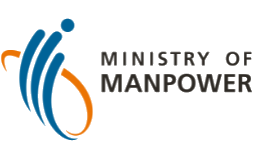About
– Lee Hsien Loong, Prime Minister of Singapore, 2022
– Lim Chong Yah, National Wages Council Chairman (1972 to 2001), 2013
– Hing Ai Yun, “Social Dialogue and The Flexible Wage System in Singapore”, 2003
About Tripartism in Singapore
Tripartism is generally referred to as the collaboration between the government, employer organisations and trade unions. The process favours negotiation, cooperation and compromise. One of the leaders in the process of tripartism has been the International Labour Organization (ILO). The ILO defines tripartism as “the process by which workers, employers, and governments contribute to the setting of workplace standards and the protection of workers’ rights worldwide.”
Internationally, the practice and process of tripartism has been entrenched in the ILO’s constitution since its establishment in 1919. Today, the ILO requires more than 180 of its member states to send representatives from government, employers, and workers’ organisations to actively partake in its consultations and drafting of labour standards and conventions. In addition, the ILO promotes and defends tripartite cooperation as the best practice to conflict resolution in labour and work-related matters.
As a result of these best practice standards, many developed and developing countries worldwide have established their own tripartite institutions and set legislations based on the international standards. Important to note however, is that having tripartite institutions does not always guarantee fruitful tripartite exchanges, nor does it guarantee the above mentioned values of cooperation, compromise and an overall affiliation between the government, employers and workers.
In Singapore’s case, the establishment and existence of the National Wages Council (NWC) from February 1972 is widely seen as the hallmark embodiment of the nation’s foray into the process of tripartism. This is especially so in setting up the process of ensuring orderly wage increases and establishing wage guidelines for the economy. A key factor behind Singapore’s accomplishment in setting up the NWC and thereby venturing into the process of tripartism, has been the collaborative approach between the government, workers, and employers. Tripartism in Singapore, however, also goes beyond setting wages.
About the Microsite
The story of Singapore’s tripartite approach to wage setting and other areas of work may be useful for those seeking an understanding of how social, economic and political actors come together to help a country navigate interests of labour and capital in order to achieve sustainable, fair and inclusive economic growth.
This interactive policy microsite explores the following:
- What led to the development of tripartism in Singapore?
- How does tripartism work in Singapore?
- How has tripartism helped to maintain industrial relations and overcome crises in Singapore?
- Is tripartism still relevant today?
To provide more policy context for viewers, this policy story includes several extracts from interviews conducted with prominent members who have been involved in Singapore’s tripartite work.
Finally, this policy story does not just intend to serve as a mere monograph for general interest. As with the ever-changing dynamics of tripartism and global economy, the microsite aims to serve as a springboard for future collaborations, discussions and partnerships for the wider local and international community on the developments of tripartism.
This policy story microsite is developed by the Case Insights Unit at the Lee Kuan Yew School of Public Policy, National University of Singapore, with contributions from the Tripartite Collective, Ministry of Manpower, National Trades Union Congress, Singapore National Employers Federation, and the National Wages Council Singapore. The microsite has been funded by the Lee Kuan Yew School of Public Policy.
You can reach us at lkysppcase@nus.edu.sg.
Our Partners
Our Partners





